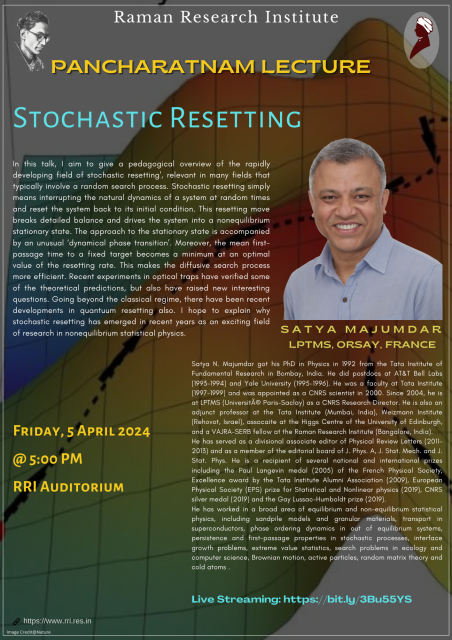Pancharatnam Lecture
Stochastic Resetting
Speaker: Satya Majumdar (LPTMS, University of Paris-Saclay, France )
In this talk, I aim to give a pedagogical overview of the rapidly developing field of `stochastic resetting', relevant in many fields that typically involve a random search process. Stochastic resetting simply means interrupting the natural dynamics of a system at random times and reset the system back to its initial condition. This resetting move breaks detailed balance and drives the system into a nonequilibrium stationary state. The approach to the stationary state is accompanied by an unusual ‘dynamical phase transition’. Moreover, the mean first-passage time to a fixed target becomes a minimum at an optimal value of the resetting rate. This makes the diffusive search process more efficient. Recent experiments in optical traps have verified some of the theoretical predictions, but also have raised new interesting questions. Going beyond the classical regime, there have been recent developments in quantum resetting also. I hope to explain why stochastic resetting has emerged in recent years as an exciting field of research in nonequilibrium statistical physics.

Association (2009), European Physical Society (EPS) prize for Statistical and Nonlinear physics (2019), CNRS silver medal (2019) and the Gay Lussac-Humboldt prize (2019).
He has worked in a broad area of equilibrium and non-equilibrium statistical physics, including sandpile models and granular materials, transport in superconductors, phase ordering dynamics in out of equilibrium systems, persistence and first-passage properties in stochastic processes, interface growth problems, extreme value statistics, search problems in ecology and computer science, Brownian motion, active particles, random matrix theory and cold atoms.